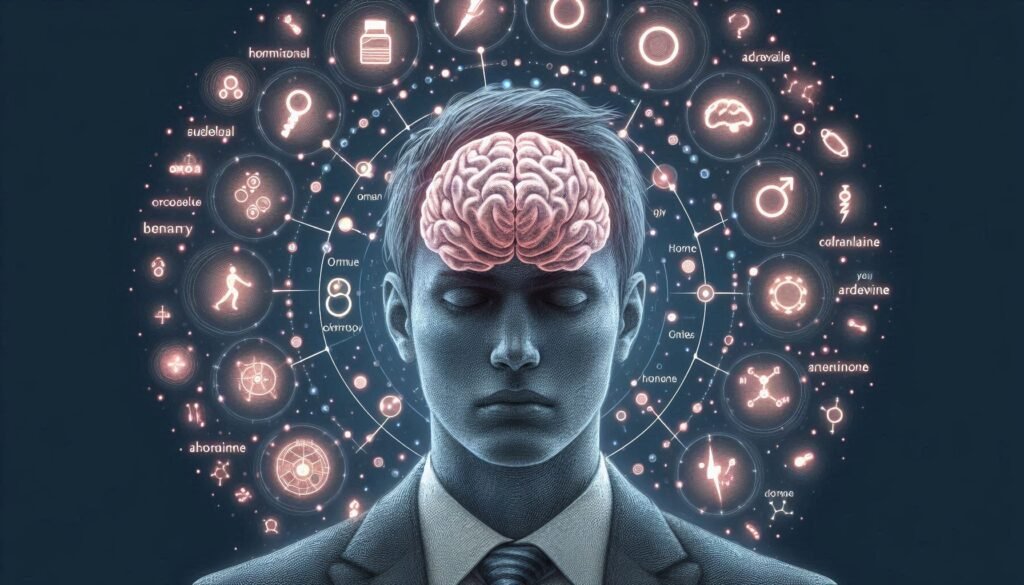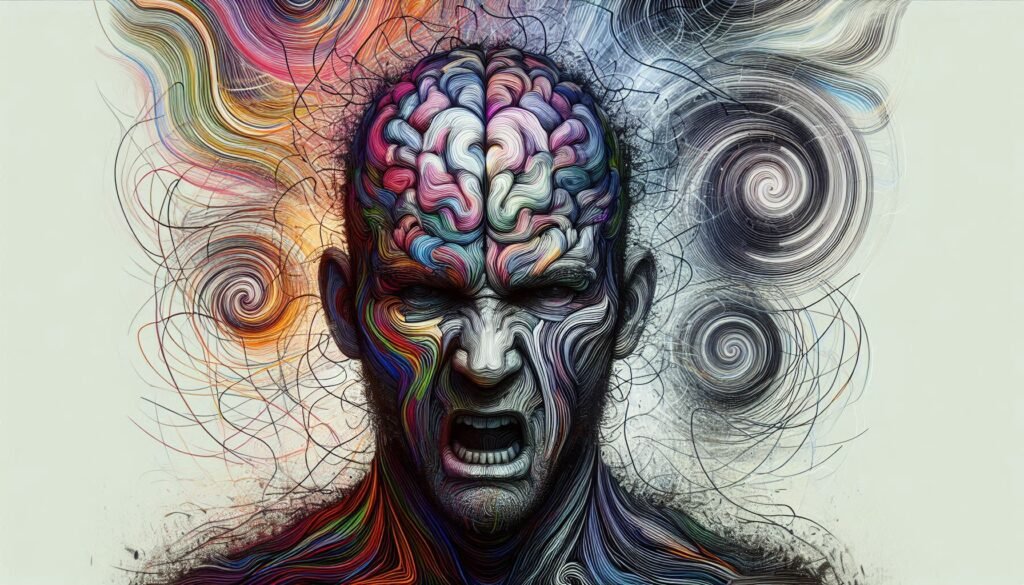Head trauma, whether from sports injuries, falls, or accidents, can lead to a ripple effect of cognitive challenges. One of the most common yet often overlooked issues faced by individuals after such incidents is concentration difficulties following head trauma. These deficits can significantly impact daily life and work performance.
As recovery progresses, many may find it unsettling when tasks that once seemed effortless become daunting obstacles. The brain’s ability to focus and process information effectively is crucial for maintaining relationships and achieving goals. Understanding the underlying causes and exploring effective rehabilitation strategies becomes essential for those affected.
In this blog post, we will delve into the complexities of cognitive impairment in post-concussion syndrome. We’ll explore different types of attention deficits that arise after concussive injuries and how they impact everyday living. By shedding light on neuropsychological assessments alongside various treatment options—both therapeutic and lifestyle—we aim to provide valuable insights for anyone grappling with these challenges. Join us as we navigate through the nuances of concentration difficulties following head trauma.

Understanding Cognitive Impairment in Post-Concussion Syndrome
Cognitive impairment is a common consequence of post-concussion syndrome (PCS), affecting numerous individuals after head trauma. This condition encompasses a range of issues, including memory lapses, difficulty in problem-solving, and particularly concentration difficulties following head trauma.
The brain’s intricate networks can be disrupted by the impact of an injury, leading to challenges in attention and focus. Even simple tasks may require more mental effort than before, causing frustration and anxiety for those affected.
Research indicates that these cognitive impairments are often linked to neurochemical changes within the brain. These alterations can impede effective communication between neurons, impacting overall cognitive performance.
Understanding these mechanisms is vital for developing tailored rehabilitation strategies. By identifying specific deficits early on, healthcare professionals can implement targeted interventions aimed at improving cognitive function and quality of life for individuals experiencing PCS symptoms.
Types of Attention Deficits Following Concussive Injuries
Attention deficits following concussive injuries can manifest in various forms, impacting an individual’s ability to focus and process information. One common type is sustained attention deficit, where a person struggles to maintain concentration over extended periods. This often leads to difficulties in tasks that require prolonged mental effort.
Another form is selective attention deficit. Individuals may find it challenging to filter out distractions while concentrating on specific tasks or conversations. This can be especially problematic in environments with multiple stimuli, making social interactions overwhelming.
Divided attention deficits are also prevalent after head trauma. Those affected may struggle to juggle multiple tasks simultaneously, leading to increased errors and frustration during daily activities or work responsibilities.
Shifting attention deficits hinder the ability to switch focus between different tasks efficiently. This can lead to decreased productivity and heightened stress as individuals grapple with their cognitive limitations following injury. Understanding these types of deficits is crucial for effective rehabilitation strategies tailored to each individual’s needs.
The Impact of Concentration Issues on Daily Life and Work
Concentration difficulties following head trauma can significantly disrupt everyday life. Individuals often find it challenging to focus on tasks that once seemed straightforward. This struggle affects not only personal endeavors but also professional responsibilities.
In the workplace, reduced concentration can lead to mistakes and decreased productivity. Employees may miss important details in reports or misinterpret instructions, which can create tension with colleagues and supervisors. These setbacks might further exacerbate feelings of frustration and anxiety.
At home, maintaining attention during conversations or activities becomes increasingly difficult. Family members may feel neglected or unappreciated when their loved ones cannot engage fully in shared moments. This strain impacts relationships over time.
Social interactions also take a hit as individuals withdraw from gatherings due to embarrassment about their cognitive struggles. The cumulative effect creates a cycle of isolation and emotional distress, making recovery even more complex for those experiencing concentration issues after head trauma.
Neuropsychological Assessment of Post-Concussion Cognitive Function
Neuropsychological assessments play a crucial role in evaluating cognitive function following head trauma. These evaluations help identify specific deficits, such as concentration difficulties following head trauma. A comprehensive assessment typically involves various standardized tests that measure memory, attention, problem-solving skills, and executive functioning.
The testing process often begins with an interview to gather detailed information about the individual’s medical history and symptoms. This background helps clinicians tailor the evaluation to address particular concerns related to post-concussion syndrome.
During the assessment, patients may engage in tasks designed to challenge their cognitive abilities under controlled conditions. Observations made during these tasks provide valuable insights into how concussive injuries have affected mental processes.
Furthermore, results from neuropsychological assessments guide treatment planning for rehabilitation strategies aimed at improving cognitive function. By pinpointing specific areas of difficulty, healthcare professionals can develop targeted interventions tailored to each patient’s unique needs.
Cognitive Rehabilitation Techniques for Improving Concentration
Cognitive rehabilitation techniques play a crucial role in addressing concentration difficulties following head trauma. These strategies are designed to help individuals regain cognitive functions and improve their daily performance. One effective method is the use of attention training exercises, which can enhance focus by gradually increasing task complexity.
Another technique involves memory aids, such as checklists or visual reminders. These tools simplify tasks and reduce cognitive load, making it easier for individuals to stay on track. Engaging in structured activities like puzzles or games can also stimulate brain function while providing enjoyable ways to practice concentration skills.
Mindfulness practices offer additional benefits by promoting awareness and reducing distractions during everyday activities. Techniques such as meditation or deep breathing exercises help center thoughts and enhance mental clarity over time.
Working with a trained therapist allows for personalized approaches tailored to individual needs. Combining various methods ensures that recovery from concentration issues becomes more manageable and effective in the long run.
Medication Options for Managing Attention Deficits
Managing attention deficits after head trauma often involves medication as a supportive tool. Stimulants, such as amphetamines and methylphenidate, are commonly prescribed for their effectiveness in enhancing focus and concentration. These medications work by increasing dopamine levels in the brain, which plays a crucial role in regulating attention.
Non-stimulant options like atomoxetine can also be beneficial. This medication is particularly useful for individuals who may experience anxiety or other side effects from stimulants. It helps improve attention without the same level of risk for dependency.
Other medications considered include antidepressants and anti-anxiety drugs. They can alleviate related symptoms that interfere with cognitive function, helping to create an improved mental environment for recovery.
Consulting with a healthcare professional is essential when exploring these options. Individual responses vary significantly, making personalized treatment plans vital to effectively address concentration difficulties following head trauma.
Lifestyle Modifications to Support Cognitive Recovery
Making lifestyle modifications can significantly aid cognitive recovery after head trauma. Emphasizing a balanced diet is crucial. Nutrient-rich foods, particularly those high in omega-3 fatty acids and antioxidants, support brain health. Incorporate plenty of fruits, vegetables, whole grains, and lean proteins to nourish the mind.
Regular physical activity also plays a vital role in enhancing concentration and overall cognitive function. Engaging in moderate exercise like walking or swimming increases blood flow to the brain and promotes neuroplasticity. Aim for at least 30 minutes of activity most days.
Establishing a consistent daily routine helps create structure and predictability. This stability can mitigate feelings of overwhelm often experienced by individuals facing concentration difficulties following head trauma. Break tasks into smaller steps to make them more manageable.
Mindfulness practices such as meditation or yoga are beneficial too. These techniques help reduce anxiety while improving focus and attention span over time—providing essential tools for navigating daily life post-injury.
The Role of Sleep in Post-Concussion Concentration Issues
Sleep plays a crucial role in cognitive function, especially after experiencing head trauma. Following a concussion, many individuals report disturbances in their sleep patterns. These disruptions can exacerbate concentration difficulties and impede recovery.
Quality sleep is essential for memory consolidation and overall brain health. When the body lacks restorative sleep, cognitive processes such as attention and focus may suffer significantly. Individuals with post-concussion syndrome often find themselves feeling mentally fatigued during the day due to inadequate rest at night.
Moreover, poor sleep can lead to emotional instability and increased irritability, further complicating any attempts to concentrate on tasks or responsibilities. It creates a cycle where lack of focus contributes to stress about performance which then disrupts sleep even more.
Addressing these issues requires an understanding of healthy sleep habits. Simple changes like establishing a regular bedtime routine or creating a restful environment can make all the difference in improving concentration levels for those recovering from concussions.
Strategies for Managing Work and Academic Demands
Managing work and academic demands can be challenging for individuals experiencing concentration difficulties following head trauma. Establishing a structured routine is essential. Break tasks into smaller, manageable segments to avoid feeling overwhelmed. This approach allows for focused attention on one task at a time.
Utilizing tools such as planners or digital calendars helps keep track of deadlines and commitments. Setting reminders can alleviate the pressure of remembering every detail, allowing for better focus during designated work periods.
Creating an optimal workspace is also beneficial. A clutter-free environment minimizes distractions, while adequate lighting and comfortable seating promote longer periods of concentration. Consider using noise-canceling headphones if background noise becomes disruptive.
Communicate your needs with coworkers or professors when necessary. They may provide accommodations that support your cognitive recovery process, whether it’s extended deadlines or flexible working hours tailored to your specific challenges.
Long-Term Prognosis and Ongoing Management of Cognitive Symptoms
Long-term prognosis for individuals experiencing concentration difficulties following head trauma varies widely depending on several factors, including the severity of the injury and individual health. Many people see significant improvements over time, especially with appropriate interventions. However, some may continue to experience persistent cognitive symptoms.
Ongoing management is crucial. Regular follow-ups with healthcare providers can help monitor progress and adjust treatment plans as needed. Continued neuropsychological assessments provide insights into cognitive recovery and areas needing additional support.
Engaging in consistent cognitive rehabilitation exercises plays a vital role in sustaining improvements. These activities are designed to enhance attention span and processing speed while building coping strategies for daily challenges.
Support systems also contribute significantly to long-term outcomes. Family involvement, peer support groups, or professional counseling can create an environment conducive to healing.
It’s essential for those affected by concentration difficulties after head trauma to remain proactive about their recovery journey. Staying informed about new research findings or advancements in treatment options empowers individuals facing these challenges every day.


